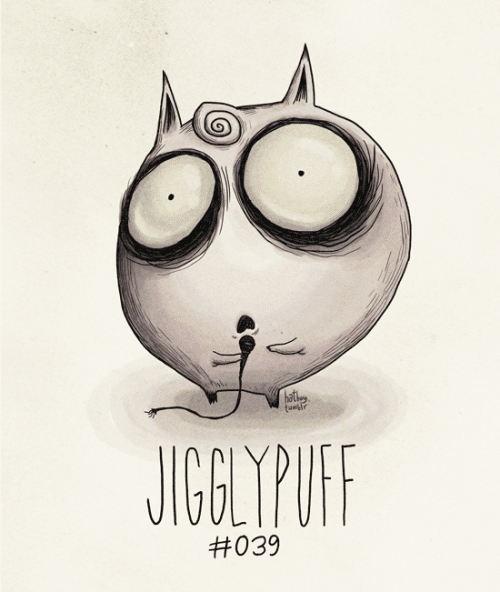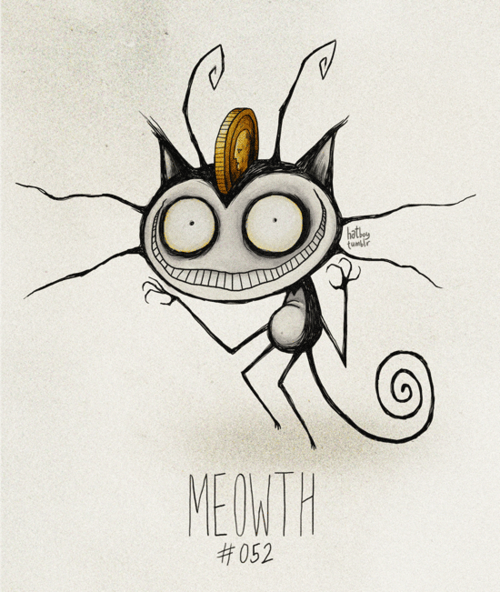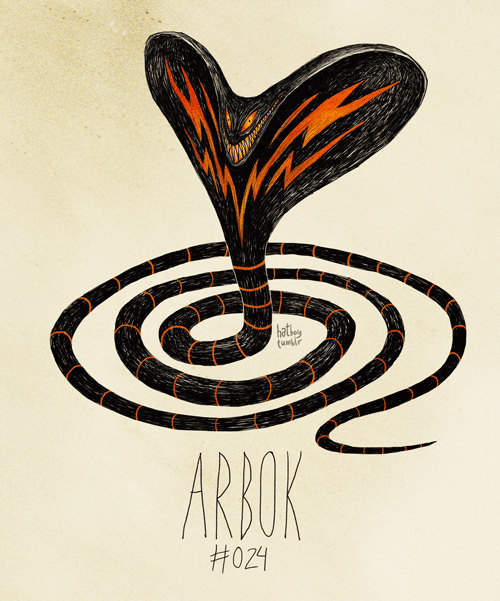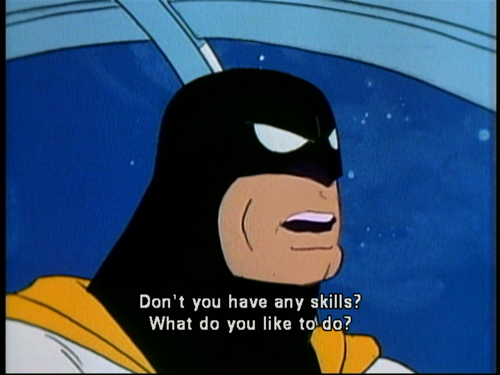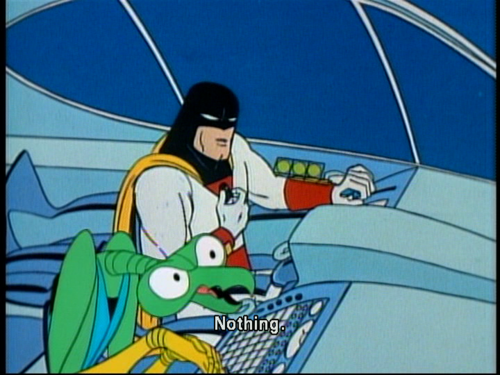
firehose
Shared posts
The Argentines Who Speak Welsh
The Dosa Gentrification
bartkira: Hey, East Coast USA! There is a Bartkira Exhibition...

Hey, East Coast USA! There is a Bartkira Exhibition in Richmond, Virginia on the 7th of November!
I hear there are guns that go ‘bang, bang’ there. (N.B. I do not know much about Virginia except what I hear from Clipse ft. Pharrell lyrics.)
awwww-cute: My dogs tried to trade me a hibiscus flower and a...

My dogs tried to trade me a hibiscus flower and a tennis ball, for the snack I was eating
sixpenceee: Tim Burton Inspired Pokemon Drawing by Vaughn...
Coca-Cola donation to anti-GMO-labeling fight makes M. 92 most expensive in Oregon history
 |
submitted by paulen8 [link] [61 comments] |
dialbm: i’ll kick anyone’s ass. i’ll kick your ass. i’ll kick...
biomorphosis: The maned wolf is the largest canine species in...



The maned wolf is the largest canine species in South America and closely resembles a red fox on stilts because of its long legs. It is neither a wolf, fox, coyote, or dog but rather a member of its own Chrysocyon genus, making it a truly unique animal. They possess a mane that runs from the back of the head to the shoulders which can be erected to intimidate other animals when displaying aggression or when they feel threatened.
Unlike other wolves that live in packs, maned wolves do not form or hunt in packs but prefer to live alone. The maned wolf is considered the last surviving species of the Pleistocene Extinction, which wiped out all other large canids from the continent.
oldbookillustrations: Thomas Edmund Harvey’s bookplate, by...

Thomas Edmund Harvey’s bookplate, by Cyril Goldie.
From Modern book-plates and their designers, Winter number of the Studio, London, 1898.
(Source: archive.org)
ostolero: samurott: why do gamers need a gate anyway
this-city-is-a-symphony: stigmartyr762: sineala: I can’t...




I can’t even.
[Marvel Adventures: Avengers #38.]
The Hulk at a petting zoo. Too freakin funny. LOL
The Hulk once set free a huge lab full of animals being held for cosmetic testing, and not a single fuck was given. You go, Hulk. You go.
The secondary market for Soylent on Craigslist and Ebay | Motherboard
firehose'This is the prime Soylent victim: someone overwhelmed by the process of finding food. “What if you never had to worry about food again?” the company’s website asks, as if food were as difficult to come by as money or health, which it is for some people, but not really for Soylent’s target demographic of r/technology.
Their demographic is large enough, however, that Soylent is on backorder. The company told me my Soylent would take 10 to 12 weeks to arrive. It took 20. If I had been dependent on Soylent as my primary food source, I would have died waiting for it.
Soylent fans are apoplectic about the delays. One user posting on the Soylent forums threatened to burn the founder’s house down if the shipment were delayed again, writing, “I am extremely serious.” Delays are the most-commonly discussed topic on the forums, aside from complaints and solutions for Soylent-induced flatulence.'
...
'“I have to say it was not life changing as many have suggested,” one user wrote. There were none of the miraculous effects people have described, such as greater energy and clear skin. It didn’t save much time, because it took longer to drink than it would have taken to prepare and eat breakfast or lunch. The only noticeable benefit was having fewer dirty dishes to clean. “To those people pining for their first shipment of Soylent, I say temper your expectations.”'
...
'For some, Soylent is working as advertised. I responded to one New Yorker who was selling his excess supply. “I use it for 95 percent [of meals] but only eat between 1,000-1,500 calories a day. This leaves me with 1-2 weeks extra a month,” he wrote back.
When I responded that that doesn’t seem like enough calories, he e-laughed. “Haha well I'm losing weight plus I work in an office 9 hours a day so I don't need that much to begin with. I ramp it up when I go hiking or to the gym.” What an intense person!'
...
'It tasted like cake mix and was not any obviously more satiating than any other breakfast (the oatmeal beats it by a mile).
I’m clearly not as hardcore as the true Soylenters. Neither, apparently, is Merchant, who still has a bag of 11-month-old Soylent sitting on his desk.'

Five months ago, I ordered a week’s supply of the future of food. It finally came: two snow-white boxes stamped “Soylent.” One box contains the pitcher for mixing your liquid meal. The other says “powdered food.”
I haven’t opened them yet, because I don’t want this anymore. I bought my Soylent on May 12, in some weird moment. I was working at The Verge, where an editor was preparing a story about subsisting on Soylent for a month (yeah, the story Motherboard’s Brian Merchant did a year ago).
Our office was in Midtown, where everything is stressful and every transaction is a battle, and I was sick of fording Broadway so I could wait in line for 20 minutes for something bad and overpriced to eat. I had hacked breakfast with bulk Amazon orders of oatmeal. I would hack lunch with Soylent.
If I had been dependent on Soylent as my primary food source, I would have died waiting for it
This is the prime Soylent victim: someone overwhelmed by the process of finding food. “What if you never had to worry about food again?” the company’s website asks, as if food were as difficult to come by as money or health, which it is for some people, but not really for Soylent’s target demographic of r/technology.
Their demographic is large enough, however, that Soylent is on backorder. The company told me my Soylent would take 10 to 12 weeks to arrive. It took 20. If I had been dependent on Soylent as my primary food source, I would have died waiting for it.
Soylent fans are apoplectic about the delays. One user posting on the Soylent forums threatened to burn the founder’s house down if the shipment were delayed again, writing, “I am extremely serious.” Delays are the most-commonly discussed topic on the forums, aside from complaints and solutions for Soylent-induced flatulence.
I figured these delays meant it would be easy to unload my Soylent. I posted an ad on Craigslist, offering my supply at cost, and waited for the offers to roll in.

Unfortunately, there’s already a lot of Soylent on Craigslist.
Kansas City, selling a 25-day supply for $150: “I tried it for 3 days and it's not for me.”
Salt Lake City, selling a month’s worth for $300: “While I love Soylent I haven't been needing to eat all of what I get each month and as such I have a whole months extra not being used.”
Dallas, in the free section: “I did not care for it, so I'm giving away my one-month supply of the stuff.”
There are even more listings over on eBay, where the sellers seem to be more savvy about arbitrage. “You want it, I have it,” one guy wrote. Another seller is hoping to get $150 for the box he got for $65.
Some of this may be due to the Great Soylent Disillusionment; the slow realization that what was sold as a life-changing, potentially world-changing substance is really nothing more than Ensure with different marketing.
“I have to say it was not life changing as many have suggested,” one user wrote. There were none of the miraculous effects people have described, such as greater energy and clear skin. It didn’t save much time, because it took longer to drink than it would have taken to prepare and eat breakfast or lunch. The only noticeable benefit was having fewer dirty dishes to clean. “To those people pining for their first shipment of Soylent, I say temper your expectations.”

For some, Soylent is working as advertised. I responded to one New Yorker who was selling his excess supply. “I use it for 95 percent [of meals] but only eat between 1,000-1,500 calories a day. This leaves me with 1-2 weeks extra a month,” he wrote back.
When I responded that that doesn’t seem like enough calories, he e-laughed. “Haha well I'm losing weight plus I work in an office 9 hours a day so I don't need that much to begin with. I ramp it up when I go hiking or to the gym.” What an intense person!
Since no one has responded to my ad, I’ve become a Soylent pitchwoman. I think I found a friend who is willing to take it off my hands for a cut rate. He’s curious to see how the promise of ultimate nutrition with minimal hassle pans out.
I actually drank Soylent for a while, mixed with coffee, back when the company was mailing it to journalists in ZipLoc bags. It tasted like cake mix and was not any obviously more satiating than any other breakfast (the oatmeal beats it by a mile).
I’m clearly not as hardcore as the true Soylenters. Neither, apparently, is Merchant, who still has a bag of 11-month-old Soylent sitting on his desk. Wonder how much that would go for?

10 First Names Better for Star Wars‘ Emperor Palpatine Than “Sheev” - Three guesses for #1
firehosewas rooting for Bo Jackson Palpatine
The internet found itself positively in conniptions lately when the long-awaited first name of Star Wars‘ Emperor Palpatine was revealed. Well, some corners of the Internet. The nerdy, vaguely bored bits. Others of you were more focused on, like, current events and shit. I can respect that.
Anyway, how SheevGate went down, via Star Wars Underworld, is that one of the panelists at Del Rey Books’ “A New Dawn” panel at New York Comic Con mentioned that James Luceno’s upcoming book Tarkin would finally give Emperor Palpatine a first name after decades of him not having one. Then Palpy’s Wookieepedia entry was changed to say his full name is “Sheev Palpatine.” As io9 points out, this could easily be a cruel (so cruel) hoax, because anyone can edit Wookieepedia, but the fact that the name is sourced to page 93 of Tarkin certainly makes it look like someone’s working off a legitimate advanced copy of the book.
Regardless: Sheev. Da hell, Star Wars EU? I quit you when you dropped a moon on Chewie, and now I see I made the right choice. Here are 10 names that would absolutely, positively, I-am-100%-not-joking (note: I am actually joking) be better than “Sheev”:
- KHALEEESIIIIII-III-III-IIIIIIIII
- Inigo Montoya
- Werner Herzog
- Abernathy von Fartsworthy
- BLADE
- Fitzcarraldo
- Aragorn aka the Dúnadan aka Strider aka Longshanks aka Wingfoot aka Elessar Telcontar aka Estel aka Envinyatar aka Thorongil
- Frank
- “Rich, Chocolatey”
And finally:
- SNORTBLAT
Are you following The Mary Sue on Twitter, Facebook, Tumblr, Pinterest, & Google +?
Newswire: No single artist’s album has gone platinum in 2014

From the visionary researchers who first discovered that water is wet and bears poop in the woods comes another shocking announcement: People don’t buy albums as much as they used to. Obviously, album sales have been going downhill ever since the breakout year when music was first invented, but the headline-friendly information this time around is that no one artist’s album has gone platinum this year. This actually comes from Forbes, which notes that only one album has sold the requisite million copies in 2014, and that’s the Frozen soundtrack. Also, Forbes says the Frozen soundtrack has sold about 3.2 million, and believes “with winter coming, that number is sure to rise,” which is something we only wanted to bring up so everybody could picture Ned Stark hyping album sales.
While we assume nobody in the world will be surprised by any of this, it is ...
On GamerGate: A letter from the editor
firehose'By politics, the voices calling for ethics reform really mean "progressive" politics. The so-called corruption that needs to be rooted out is a focus on "diversity" and the "magnitude of the human experience." It should be no surprise that the outlets and voices specifically targeted by GamerGate are progressive. Baldwin was the first of several notable opportunists who, despite caring little for video games or video game culture, were more than happy to contribute to any movement that counted "SJWs" — that's "social justice warriors," for those of you out of the loop — as enemies. That "social justice warrior" is considered a pejorative at all speaks volumes about the motivations behind much of GamerGate and its fixation on progressive voices.
If GamerGate simply wants a conservative counter to what they consider a left-leaning gaming press, I think that's great! That's healthy! You don't have to like the way we or any other outlet cover video games. If you truly believe there's an army of people who reject "progressive" voices and outlets like Polygon and Kotaku, or who would prefer coverage "just about the games," then I'd encourage you to start a new site for those readers. There's no easier or better time to do it.
But by the same token, if you believe video games are an art form, that video games are important, that video games actually mean something, then demands for silence couldn't be a less effective tactic for promoting those beliefs.'
Over the last few months, we've seen many people — some of them friends, some of them colleagues, some of them professional acquaintances — harassed, threatened, bullied for daring to suggest that video games can and should do better.
It's no coincidence that many of these people — award-winning writers, professional game developers, strong-minded critics — are women, unified by the belief that video games aren't perfect. The audacity of this belief has prompted an alarming wave of hatred that has snowballed until finally, perhaps inevitably, it reached the front page of The New York Times, as significant a milestone for mainstream awareness as there is. It would appear that gaming, on the cusp of mainstream acceptance, Supreme Court victory in hand, has traded in the stereotype of the violent loner for the violent misogynist.
Under the headline "Feminist Critics of Video Games Facing Threats," New York Times writer Nick Wingfield details the threats made against Tropes Vs. Women creator Anita Sarkeesian, Giant Spacekat studio head Brianna Wu and independent developer Zoe Quinn. It was Quinn's relationship with a video game journalist, as revealed in an angry tell-all posted by an ex-boyfriend — the relationship being a supposed ethics breach that was later debunked — that not only kicked off this wave of hatred but also its complementary "movement," focused ostensibly on ethics in game journalism. That movement came to be known as GamerGate, thanks to the branding efforts of one Mr. Adam Baldwin, an actor who, despite being "not an avid gamer," was happy to lend his soapbox to the campaign.
This is where Polygon becomes a part of the story and my ability to be objective starts to wane.
It's hard not to get defensive when told your outlet is being singled out for "rampant corruption" and "an alarming lack of ethics" by a largely anonymous mob screaming over each other, hastily defining exactly what ethical breaches they found most alarming. Journalists contributing exceedingly small sums to independent game developers, via Patreon, was highlighted as a particularly egregious failure of the games press. I didn't agree, and still don't, but also didn't see the harm in disclosing that information to the public when applicable, which wasn't often. And thus began a journey of good-faith efforts met with, what else? Harassment.
Of course, this whole thing didn't begin with "ethics." When demands from the proto-GamerGate crowd to cover the Quinn "controversy" got louder, we discussed the topic internally. We debated its newsworthiness — it turns out we don't always agree — but it was the Society of Professional Journalists' Code of Ethics that ultimately helped me make the decision to decline coverage of what was now being called a conspiracy. "Ethical journalism treats sources, subjects, colleagues and members of the public as human beings deserving of respect," the code reads under the heading of "Minimize Harm."
Journalists should, it continues:
Balance the public's need for information against potential harm or discomfort. Pursuit of the news is not a license for arrogance or undue intrusiveness.
Show compassion for those who may be affected by news coverage. Use heightened sensitivity when dealing with juveniles, victims of sex crimes, and sources or subjects who are inexperienced or unable to give consent. Consider cultural differences in approach and treatment.
Recognize that legal access to information differs from an ethical justification to publish or broadcast.
Realize that private people have a greater right to control information about themselves than public figures and others who seek power, influence or attention. Weigh the consequences of publishing or broadcasting personal information.
Avoid pandering to lurid curiosity, even if others do.
Balance a suspect's right to a fair trial with the public's right to know. Consider the implications of identifying criminal suspects before they face legal charges.
Consider the long-term implications of the extended reach and permanence of publication. Provide updated and more complete information as appropriate.
This is the same SPJ ethics code that would be shared under the GamerGate hashtag as a model to follow and an example of the failures of the more progressive ends of the video game press. The same one that reads, "Boldly tell the story of the diversity and magnitude of the human experience. Seek sources whose voices we seldom hear."
But under that same hashtag, we're met with accusations of corruption because ... our review of Bayonetta 2 had the audacity to treat it like a cultural artifact and not simply a toy. The solution: Convince Nintendo to blacklist us for our impudence. Under that same hashtag, we're met with coordinated campaigns to strip us of our advertising, pointing to criticism of advertisers like Intel. The same SPJ Code of Ethics states, "Deny favored treatment to advertisers, donors or any other special interests, and resist internal and external pressure to influence coverage." To rectify these so-called ethical breaches would be in direct violation of widely accepted journalistic standards, like criticism free from corporate oversight and the freedom to critique one's own advertisers.
They say they want an ethics code? OK, we had that ready at launch and update it when appropriate.
They say they want transparency? We try for that, too!
They say they want objective game reviews? That ... well, that doesn't make any sense.
They say they want politics out of video game coverage? OK, now we're getting somewhere.
By politics, the voices calling for ethics reform really mean "progressive" politics. The so-called corruption that needs to be rooted out is a focus on "diversity" and the "magnitude of the human experience." It should be no surprise that the outlets and voices specifically targeted by GamerGate are progressive. Baldwin was the first of several notable opportunists who, despite caring little for video games or video game culture, were more than happy to contribute to any movement that counted "SJWs" — that's "social justice warriors," for those of you out of the loop — as enemies. That "social justice warrior" is considered a pejorative at all speaks volumes about the motivations behind much of GamerGate and its fixation on progressive voices.
If GamerGate simply wants a conservative counter to what they consider a left-leaning gaming press, I think that's great! That's healthy! You don't have to like the way we or any other outlet cover video games. If you truly believe there's an army of people who reject "progressive" voices and outlets like Polygon and Kotaku, or who would prefer coverage "just about the games," then I'd encourage you to start a new site for those readers. There's no easier or better time to do it.
But by the same token, if you believe video games are an art form, that video games are important, that video games actually mean something, then demands for silence couldn't be a less effective tactic for promoting those beliefs.

Despite our extensive coverage of harassment in the video game world, including a widely read piece by Brianna Wu, we haven't spoken out against GamerGate until now. We covered the more egregious examples of harassment mentioned above. We spoke to police departments and victims. But we didn't condemn the banner under which much of this hatred flew. And when inclusion in said mob is exactly 10 keystrokes away from anyone with a Twitter account — # g a m e r g a t e — it's not only hard but actually impossible to distill that mob's wishes down to any one thing. So we didn't. We were, and I specifically was, paralyzed by indecision. How do you condemn a mob without drawing attention to that same mob? For many of our staff, myself included, GamerGate presented enough of a perceived danger that we were scared for ourselves and our families. (Notable fact I remind myself of often: There are 14 children among the Polygon staff, including two under the age of 1).
If you consider yourself a GamerGate moderate, and are genuinely concerned with ethics in journalism, then I have some perhaps surprising news for you — you'd be hard-pressed to find a more interested party than the games press itself. Topics of ethics and disclosure are ... err, were frequently discussed on the GameJournoPros message board, of which I was a member. Disagreements were often the norm. Enough people had a differing view that someone shared the board's contents with a particularly one-sided journalist (who proceeded to publish the unedited logs, with email signatures and phone numbers for some members intact). Are critics of the list aware that journalists have "conspired" in this way for, literally, over a century? I live in Philadelphia, home of the Pen & Pencil Club, a similarly private social club for journalists that's been in existence since 1892. This is where journalists from the Philadelphia Inquirer, a newspaper that won 17 Pulitzers in 15 years, would get drinks with journalists from competing papers and discuss, what else? Work.
The existence of familiarity among the games press is an issue, but not for the reasons GamerGate would argue. It's an issue insomuch as it inhibits new and diverse voices from joining the fray — I myself was taken to task by many of the people being attacked now over just this issue when we launched Polygon, and you know what? They were exceedingly right. But this isn't just an issue in the gaming press; it's an issue in journalism everywhere. Read this update from BuzzFeed's Ben Smith on how one of the fastest-growing media companies is tackling this challenge.
So yes, we take and have taken accusations of ethical impropriety seriously, and still find the accusations from GamerGate wanting.
This brings us to StopGamerGate2014, a hashtag started by freelance writer Veerender Jubbal on Tuesday night in response to the growing wave of threats against women in the industry. It quickly trended on Twitter. Indeed, some of the people who've spoken out against GamerGate, both using the StopGamerGate2014 hashtag and otherwise, have filled a vacuum that sites like Polygon left, helping to make people comfortable speaking out against the abuse. Andy Baio discusses this here and points out that, for supporters of GamerGate who've yet to recognize the toxicity of their platform, their "best hope is that the silent are secretly on their side."
Since Polygon launched in 2012, we've worked hard — thanks to the efforts of our tireless moderation team — to engender a safe space for our readers, writers and contributors. We have zero tolerance for racism, sexism, homophobia, transphobia ... any type of harassment or trolling on our site, which is laid out in our written community guidelines. While we've addressed aspects of the harassment that exists around it, we've been silent on GamerGate specifically. That ends today.
Video games are changing, and it's incredible! New technology, new devices, new marketplaces, new players — this is all transforming the entire world of video gaming under our collective feet. It's growing bigger. It's becoming more inclusive. This is a win-win scenario. Did you love The Last of Us? I don't think we'd have seen a character like Ellie just five years ago. What about The Walking Dead, a game with an African-American lead and a nuanced view of race?
Video games are capital "C" Culture now. There won't be less attention, only more. There won't be less scrutiny. There certainly won't be less diversity, in the fiction of games themselves or in the demographics of their players. What we're in control of is how we respond to that expansion, as journalists, as developers, as consumers. Step one has to be a complete rejection of the tools of harassment and fear — we can't even begin to talk about the interesting stuff while people are literally scared for their lives. There can be no dialogue with a leaderless organization that both condemns and condones this behavior, depending on who's using the hashtag.
Attacks from the likes of Jack Thompson or Leland Yee only strengthened the resolve of gamers and unified our collective culture. But attacks from inside that same culture have led to worldwide media condemnation, a toxic dialogue and violent threats. People don't feel safe in their own homes. No need to jump at shadows of conspiracy or collusion, GamerGaters; you've already unearthed the most damaging force in video games today.
— Christopher Grant, editor-in-chief
Another Maple Leafs jersey gets thrown on the ice
firehose'the season isn't even two weeks old yet and the Maple Leafs came into the game having won two in a row'
'It's an odd protest because the team already has your money from purchasing the jersey, and will get more of your money after you inevitably purchase a new one to replace the one you threw on the ice. Way to stick it to the man.'

Angry fans have resorted to throwing their jersey on the ice during games. Why are you doing this?

Jersey throwing seems to be all the rage in the NHL these days for disgruntled fans that are tired of the lousy play from their favorite team.
It started in Edmonton last season and seems to be spreading to Toronto this season. For the second time this season (and remember, the season isn't even two weeks old yet and the Maple Leafs came into the game having won two in a row) somebody decided to take a very expensive piece of merchandise and throw it on the ice in some sort of protest. It's an odd protest because the team already has your money from purchasing the jersey, and will get more of your money after you inevitably purchase a new one to replace the one you threw on the ice. Way to stick it to the man.
The Maple Leafs were down at the time, 4-1, against the Detroit Red Wings.
At least the Maple Leafs fans have yet to make the same mistake somebody in Edmonton made last week when an Oilers fan throw a sweatshirt on the ice and forgot to remove their cell phone from the pocket.
GIF via @MyRegularFace
Misty Upham's Father Claims She Died While Fleeing from Police : People.com
Why we don't trust Google's CardDAV API | fruux blog
More college campuses swap 'No means no' for 'Yes means yes' | The Rundown | PBS NewsHour
Eliza vs Gamergate
firehosevia multitasksuicide
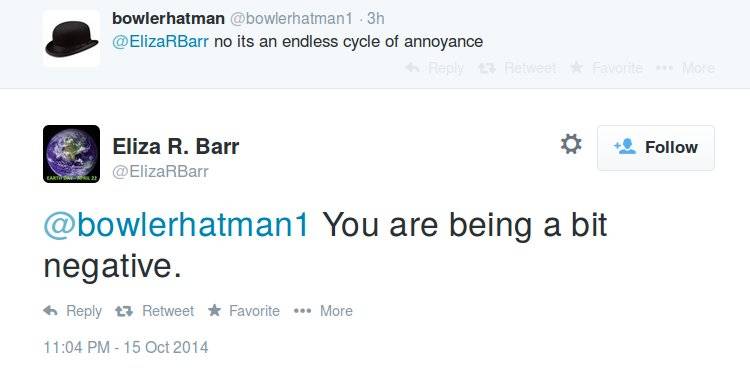
When some genius set up a 1960s non-directive chatbot psychotherapist to reply to #notyourshield tweets, hilarity ensued!
Read the rest
bottleLoft, Powerful Magnets That Hang Bottles From the Ceiling of a Refrigerator
bottleLoft is a series of powerful magnets that attach to the ceiling of a refrigerator, so users can hang bottles and free up space in the process. The magnets come in sets of three, so a six-pack can be hung with two strips. The project is currently seeking funding on Kickstarter.
images via bottleLoft
via The Awesomer
2014′s GeekGirlCon Was a Much-Needed Home For Diverse Geeks
When I got back from my fourth GeekGirlCon, held this past weekend in Seattle, I couldn’t help but feel a little lonely. While other Canadians were celebrating Thanksgiving, I was spending time with, in a way, my other family. The one that I’ve seen once a year for the last four years since the GGC started. My people.
Well over 7,000 geeks attended this year’s con, which sold out of passes for the second year. Convention organizers estimate about 40 per cent of attendees were men, and many attendees came with children—more than any other convention I’ve been to. What is it that keeps several thousand geeks coming to a convention where you’re more likely to be challenged to look critically at the media you love than to get your picture taken with the star of your favourite TV series?
For me, it’s about feeling like I belong, along with other geeks of all genders, colors, shapes, and sizes. I’ve been to conventions (like Fan Expo Vancouver) where there are almost no opportunities for fans to lead on-stage discussions or even participate in significant or meaningful ways. GGC is practically the polar opposite of that, and to me, that makes it more consistently interesting.
The first panel I attended this year was called “Feminist Community Building 101,” and it featured Anita Sarkeesian, Jamie Broadnax of Black Girl Nerds, Angela Webber of The Doubleclicks, Sheena McNeil of Sequential Tart, and Ashlee Blackwell of Graveyard Shift Sisters.
The panelists talked about the issues that they’re working on and their experience pushing for more diverse, safer geek spaces. Some suggestions for more inclusive spaces included being willing to really listen and reach out meaningfully to people from more marginalized groups, putting “all genders welcome” on posters and advertising, and offering childcare.
“There are so many ways you can affect change. It can be one-on-one. It can be in small communities. It can be offline, and that’s just as valuable,” said Sarkeesian.
My own panel, “A Woman’s Place is on the Bridge: Trek Women in Charge,” took place on Saturday afternoon. My co-panelists Grace Moore of the All Things Trek Podcast, Tanya Feldman from Geekquality, Jamala Henderson (sadly not pictured above), and I got to talk to a room packed with a couple hundred people about depictions of women in authority in Star Trek. We had a blast.
Jamala Henderson also put together my favorite panel of the convention, “Geek Elders Speak,” on Sunday morning. The “geek elders”—Susan R. Matthews, Linda Deneroff, Maggie Nowakowska, and Tish Wells—talked about the changes in fandom since the 1970s, when they first got involved. Not only did they work on some of the earliest Star Trek conventions and sci-fi fanzines, they also challenged gender norms of the time and helped others do the same.
“In the 70s there were a lot of women in fandom who grew up in households where their mother never wrote a cheque. They had no power,” said Nowakowska. She told a story about one woman who wanted to go to conventions, but her husband refused. Eventually he let her go, but only to one, because he refused to fix his own meals for longer than that.
Women didn’t always have power in their homes at the time, but in science fiction conventions, Nowakowska said, “You could really share and help people pull away from the stereotypical expectations.”
The last panel I hit up was “Fatness and Fandom,” moderated by Rachelle Abellar of Pacific Northwest Fattitude. Panelists, including Kim Correa, Sabrina Taylor, Shawna Jaquez, Amber Bushnell, and Uhura Jones, talked about issues faced by fat fans, including a serious lack of geeky merchandise for diverse body types.
“It would be great to—like the rest of you—just go on a website and press a button and have it show up at my house,” said Taylor about how many larger fans have to go searching around for geeky clothing that actually fits and is good quality.
There were a lot of panels that looked amazing but that I didn’t get a chance to check out. “My favorite Panel had to be ‘Queerbating in Genre Television: Representation and Exploitation’,” my friend and first-time GGC-goer Oren Ashkenazi said. “Queerbating is not a topic I know very much about, and as a writer who wants to be inclusive, I don’t want to end up using LGBT characters in an exploitative way by mistake.”
I think the programming focus on fan-led discussions like these lends itself to a friendlier, more collaborative atmosphere. GGC is not the type of con where you’ll overhear cosplayers denounce each other for tiny costume flaws or fans fighting about whether or not someone is a “fake geek girl.”
On the “Fatness and Fandom” panel, Uhura Jones talked about how watching a panel on fatness at a previous GeekGirlCon helped her get over her fear and speak her mind publicly. Likewise, Amber Bushnell said, “Being surrounded by people who look like you and have gone through the same experiences as you… just knowing that you’re not alone is really, really important.”
“The highlight of GeekGirlCon this year was definitely being able to connect with so many awesome fat and geeky women. I’m really impressed with how much body positive programming there was this year. I feel like the treatment of fat people in the geek community is something that isn’t addressed very often, and I feel privileged to be able to contribute to the conversation again,” Rachelle Abellar told me post-panel.
“I think GeekGirlCon is different from other cons because they work extremely hard to ensure that it is a safe space for everyone to be who they are and express themselves without fear of judgment or harassment. What makes GGC different from other cons for me is how welcoming it is—I’ve only ever been to Emerald City Comicon besides this one, but as a trans person I actually felt much more welcome and safe. Will definitely go again next year!” Dakota Sather said.
Outside of the panels, other aspects of GGC keep the open, friendly feeling. The Saturday evening events included a Doubleclicks concert and a live, slightly gender-bent performance of the classic Star Trek episode “Mirror, Mirror” by Outdoor Trek.
The exhibitors hall at GGC is always full of awesome, geeky merch by mainly smaller and local artists and businesses. This year there were tons of indie comics and jewellery available, hand-made Harry Potter-style wands, geeky T-shirts for all body shapes, and four different places you could get geeky nail art done. Some of the most popular items for sale this year—both sold out before I could get my mitts on them—were the cutest-ever custom plush dragons from Skydragons and glowing clip-on cat ears from GeekStar Costuming.
I came home with a wand, a Snitch necklace, and vintage Cyndi Lauper trading cards—souvenirs of a fabulous weekend spent geeking out with passionate, creative people dedicated to celebrating our favorite geek things and working to make our fandoms better.
For everyone who didn’t get a chance to attend GeekGirlCon—or everyone who did, but wants to relive it—here’s some of my favorite cosplay from the con:
Image title
this is some kind of spaceship or something.
Jarrah Hodge is a feminist blogger from Vancouver, B.C. She runs the feminist blog gender-focus.com, and analyzes Star Trek from a feminist perspective at trekkiefeminist.tumblr.com. You can also find her on Twitter @jarrahpenguin.
Are you following The Mary Sue on Twitter, Facebook, Tumblr, Pinterest, & Google +?
Apple Pay set to square off against retailers with their own mobile pay plans - Yahoo Finance
Chinese group only bidder for Mexico high-speed train - Yahoo Finance
Mixology Expert Explains the Correct Circumstances Under Which a Cocktail Should Be Either Shaken or Stirred
“It is rarely wrong to stir a drink, but often wrong to shake it.”
On the most recent episode of “The Cocktail Spirit” on the Small Screen Network, mixology expert and historian Robert Hess explains in no uncertain terms the correct circumstances under which a cocktail should be either shaken or stirred, using the classic Manhattan as an example.
The question about When to Shake and When to Stir still confuses many, more so when you see contradictory information about this in different recipes for the same drink. The rule to follow here is really quite simple. “Stir drinks that are made with transparent ingredients, shake drinks that include cloudy ingredients.” The reason for this is mostly due to aesthetics. Drinks served in a beautiful clear glass, look better when they themselves are clear and transparent. Shaking a drink will often make it cloud up, and make it unappealing. Often it will also put a scummy looking foam residue on the top which makes it even more unappealing. If the drink already includes cloudy ingredients (such as a citrus juice, cream, or egg white) then no amount of stirring will make it clear, so go ahead and shake it.
